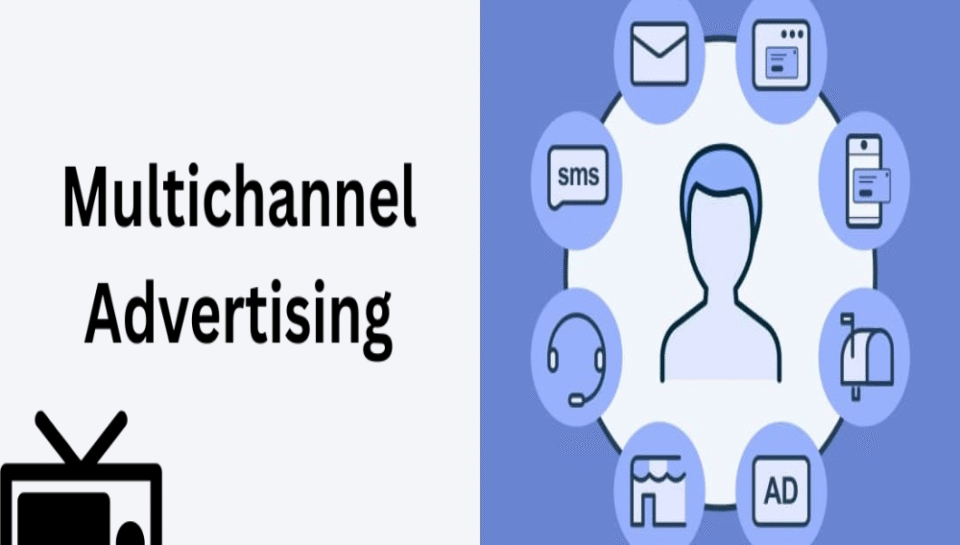
Establish budget allocation in multichannel advertising
Introduction
In the rapidly evolving digital marketing landscape, multichannel advertising has emerged as a strategic imperative for businesses aiming to reach broader audiences and maximize ROI. However, success in multichannel advertising is not merely about being present across multiple platforms; it hinges on the effective allocation of the advertising budget. Without a carefully structured budget plan, campaigns risk underperforming, overspending, or misallocating resources to channels that yield minimal returns. Establishing budget allocation in multichannel advertising requires analytical insight, strategic planning, and adaptability to market dynamics. This article delves into the intricacies of budget allocation, offering comprehensive guidance for marketers and business owners striving to optimize their multichannel strategies.
Understand audience behavior across channels
The foundation of any budget allocation strategy lies in understanding where your target audience spends their time and how they engage with different platforms. For example, younger demographics might be more active on Instagram or TikTok, while professionals could be more reachable via LinkedIn or email. Behavioral analytics, platform insights, and customer surveys help determine the most effective channels for specific audience segments. By prioritizing channels where engagement is strongest, marketers can allocate budgets where the return potential is highest.
Define clear campaign objectives
Before allocating any funds, it’s crucial to define what you want to achieve with your advertising efforts. Are you aiming for brand awareness, lead generation, website traffic, or direct conversions? Each objective demands a unique mix of channels. Awareness campaigns might benefit more from display ads and social media, while lead generation might require paid search or sponsored content. Clear objectives act as a compass that guides budget decisions across different stages of the sales funnel.
Assess historical performance metrics
One of the most reliable predictors of future success is past performance. Analyze historical campaign data to identify which channels delivered the best ROI, cost per acquisition (CPA), and customer lifetime value (CLTV). For example, if Facebook Ads consistently yield higher conversions at a lower cost, it may deserve a larger portion of the budget. Conversely, channels with low engagement and high CPA may need reevaluation or reduced funding.
Segment budget by funnel stages
In a multichannel environment, consumers interact with brands at various stages of the buying journey. Effective budget allocation involves distributing funds across these stages—awareness, consideration, and decision. Top-of-funnel efforts might include influencer marketing and video content, while mid-funnel activities could use retargeting and lead magnets. Bottom-of-funnel strategies often rely on PPC campaigns, email sequences, and direct offers. This stage-based approach ensures that potential customers are nurtured through the entire journey.
Allocate based on channel strengths and limitations
Each advertising platform has its own strengths. Google Ads are exceptional for intent-based targeting, while Instagram is great for visual storytelling. Email offers personalization, while display ads offer broad reach. Budget should be allocated based on the comparative advantage of each platform. A balanced approach leverages the unique value each channel brings to the table, avoiding over-reliance on one platform that might limit audience diversity or scalability.
Test and optimize through A/B experimentation
No budget allocation strategy should be static. A/B testing allows marketers to test different versions of ads, creatives, CTAs, and even platform combinations. By running small-scale tests across channels, marketers can identify what resonates best and scale up accordingly. This method allows for agile budget reallocation, ensuring that funds are channeled toward high-performing campaigns while minimizing waste on ineffective ones.
Account for seasonal trends and campaign cycles
Marketing budgets should reflect external factors such as seasonality, industry cycles, and special events. For instance, e-commerce businesses may allocate more funds toward digital ads during Black Friday or holiday seasons. Similarly, B2B companies might focus on fiscal quarters when decision-makers are more active. Adaptive budgeting based on these trends ensures timely impact and improved campaign efficiency.
Include contingency buffers and flexibility
Digital marketing is unpredictable. Platforms may change algorithms, consumer behavior may shift, and external events can disrupt market dynamics. Allocating a portion of the budget as a contingency fund allows marketers to respond to these changes effectively. Whether it’s capitalizing on an unexpected trend or pivoting from a poorly performing campaign, flexibility in budgeting is essential for real-time responsiveness.
Use automated budget management tools
Modern advertising platforms and third-party tools offer automated budget optimization features. These tools can analyze performance data in real-time and reallocate budgets automatically based on goals, such as maximizing conversions or minimizing CPA. Google Ads’ Smart Bidding or Meta Ads Manager’s Budget Optimization are examples of features that use machine learning to drive efficient spend. Leveraging such tools ensures data-driven decisions without manual intervention.
Evaluate and report consistently
Budget allocation is not a one-time task. Regular performance evaluations allow marketers to identify gaps, measure ROI, and make data-backed adjustments. Weekly or monthly reviews of channel performance, CTR, conversion rates, and spending patterns help maintain control over the marketing spend. Consistent reporting keeps teams aligned and enables better forecasting for future campaigns.
Hashtags
#DigitalMarketingStrategy #MultichannelAdvertising #BudgetAllocation #MarketingBudget #OnlineMarketing #AdSpendOptimization #CrossChannelMarketing #MarketingROI #DigitalAdBudget #PerformanceMarketing #MarketingAutomation #MarketingAnalytics #CustomerJourney #ContentMarketing #SocialMediaAds #PaidAdvertising #PPCStrategy #GoogleAdsTips #SocialMediaStrategy #MarketingPlanning #CampaignManagement #AudienceTargeting #MarketingPerformance #AdStrategy #MarketingInsights





